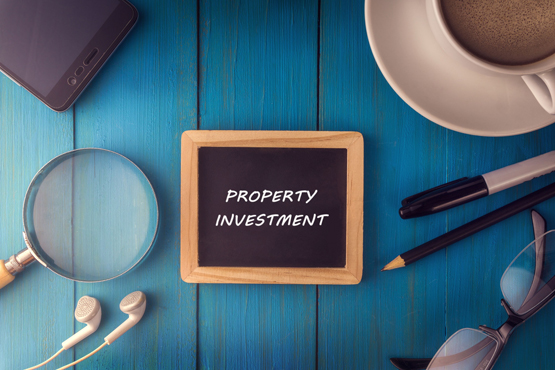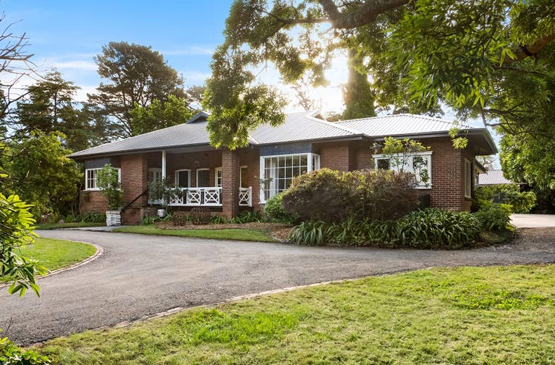Buying an investment as your first property

If you have been wanting to buy your first home, you may be feeling disappointed about soaring property prices in 2021.
Despite saving hard, it can feel as if the size of the deposit you need for your dream home keeps lifting just out of reach.
Luckily, there are other ways to break into the property market.
Many aspiring buyers have been priced out of areas they’d like to buy. Picture: realestate.com.auYour first property purchase doesn’t have to be the property you live in. Sometimes called rentvesting, plenty of first-home buyers purchase an investment property where they can afford and rent where they want to live.
In fact, investors have been returning to the market in droves this year with the value of new investor loans up by almost 90% over the 12 months to October, according to the Australian Bureau of Statistics. Currently around one third of all new housing loans are for an investment property.
So if saving for a deposit feels impossible, it might be time to reassess your property-owning strategy.
Advantages of buying an investment property first
As with most things, there will be pros and cons to buying an investment property first.
Let’s explore some of the advantages of going down this path.
You can adjust your search to suit your budget
Factors that make an area desirable to live in can also often make it less affordable. After all, locations that offer great amenities, access to transport, popular restaurants and cafes or nice scenery are typically in high demand.
Perhaps you love the area, but need more space than you can afford.
Or you plan on one day relocating to a more affordable state, but aren’t ready yet.
Whatever the reason, by buying an investment property first you can widen the net to find a solid investment property at a price you can afford.
In this way, an investment property can be a great option for first-home buyers who feel they have been priced out of the market where they want to live – for now.
Potential to generate better returns
When buying a home to live in, emotions play a big role in purchasing decisions. You’re going to be spending a lot of time there and so it’s understandable that most prospective homeowners will want a home that appeals to their lifestyle.
Removing the emotion from your decision and instead considering factors like a property’s potential rental income or capital growth gives you much more choice in where to buy and what kind of property to purchase.
Given you are purchasing with your head and not your heart, you may even find that your investment property increases in value much more than the property you’d have bought to live in.
Tax benefits
An investment property allows you to claim your property expenses at tax time. This includes the interest you pay on your investment loan, as well as costs such as council rates, repairs, maintenance, real estate management fees and so on.
Potential to boost your borrowing power
Renting out your investment property gives you an additional income stream.
If your investment is ‘positively geared’, that is, if the rental income you earn compares favourably to your expenses, the savings you build and the boost to your overall income can also increase your borrowing power for any subsequent loans down the track.
Rentvesting allows you to live where you want but still get a foot in the door. Picture: Getty.Your mortgage broker will be able to help you determine your borrowing power.
Flexibility

Rentvesting could be a good option if you want the flexibility of being able to move whenever the need or desire arises, but would still like to have a foot in the property market.
It also gives you the freedom to live where you want (within reason).
Even if you can’t afford to buy in a certain area, you may still be able to rent there. Rents for higher end properties are typically lower than the mortgage repayments on such properties.
Disadvantages of buying an investment property first
Of course, there are also some downsides to purchasing an investment property instead of a home to live in.
It can cost money in the short term
If you are buying a property with the intention to make a capital gain, you may find your expenses are higher than your rental income. This means your property is negatively geared. This often happens in the early years before significant capital gain occurs. While you can offset this loss against your personal income, you will still be losing money due to your investment.
You’ll have to make rental and loan repayments
You need to live somewhere, of course, so unless you can live rent-free somehow, you need to factor in your own rental costs – something you don’t have when you buy your own home.
If your property is negatively geared then your expenses will outweigh any rental income, meaning you’ll have to cover any shortfall as well as your rental costs.
Fewer first-home buyer entitlements
Many government incentives targeted at first-home buyers exclude investors.
You won’t be able to claim a first-home owners grant in most cases or be eligible for the federal government’s loan deposit schemes. Stamp duty exemptions and concessions also won’t apply.
Many first-home buyer grants and incentives exclude investors. Picture: realestate.com.auEven if you later purchase a home to live in, you will no longer be eligible for first-home buyer grants or concessions if you’ve previously bought an investment property as those measures typically apply to people who have never owned any residential property in Australia.
Higher interest rates
Investment loans tend to have slightly higher interest rates, as do interest-only loans. That’s because lenders and regulators tend to view these types of loans as at greater risk of default.
Interest-only loans can be more popular with investors due to tax benefits, however once the interest-only period comes to an end you will have to start making principal and interest repayments at this higher rate.
It’s not ‘your home’
Some people just want a home to call their own so they can personalise it and know that they won’t have to move again.
But remember that an investment property can be a means to an end.
An investment property can be used as a stepping stone to your own home. Picture: realestate.com.auJust because you purchase an investment property first, doesn’t mean you can’t have your dream home down the track.
Once you start building equity in your investment property – either from capital gains or from paying down the principal – you can use it as collateral to purchase your own home.
Alternatively, if your investment increases in value, you may be able to sell it and use the cash as a deposit to afford the home you desire.


